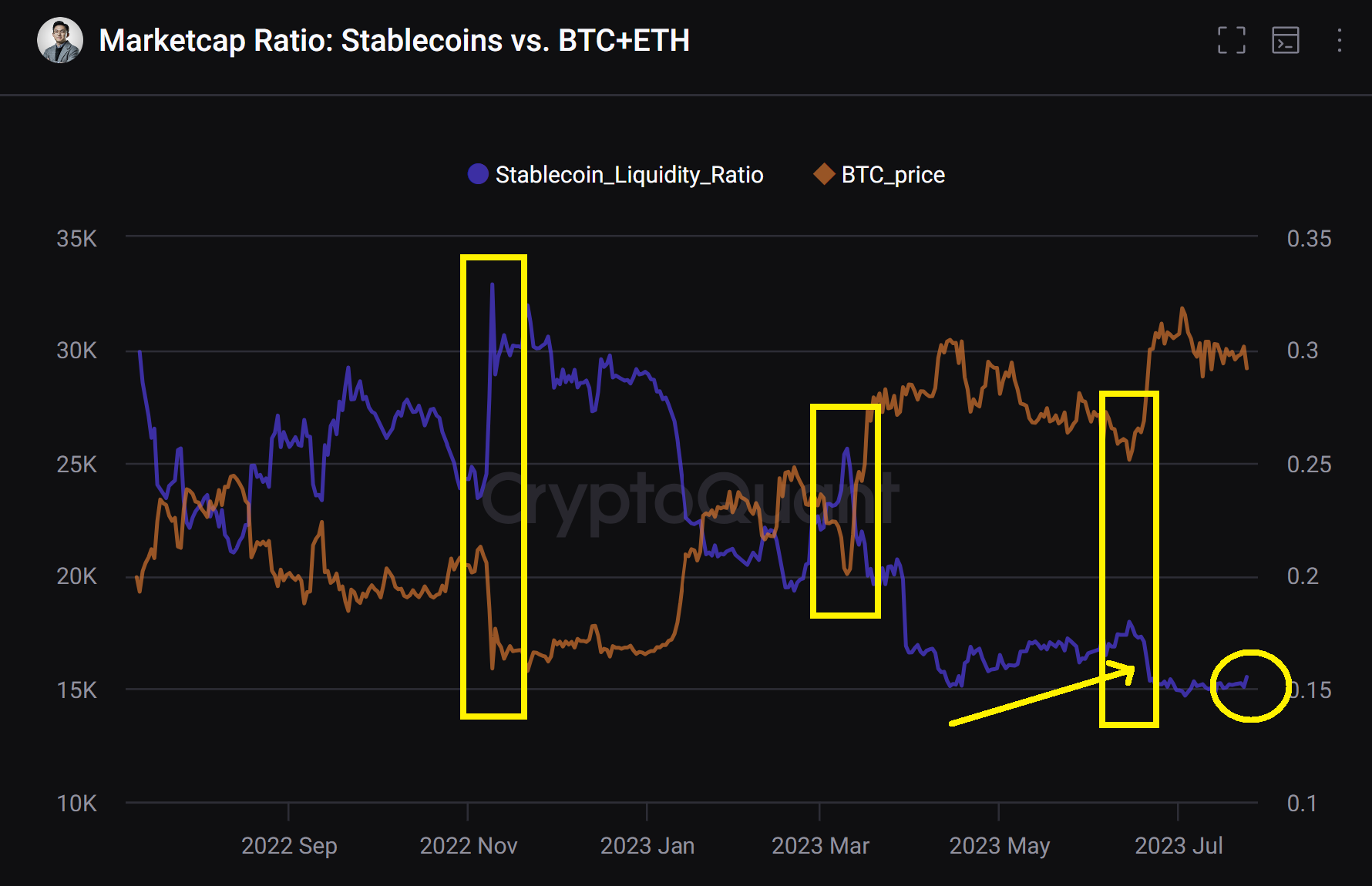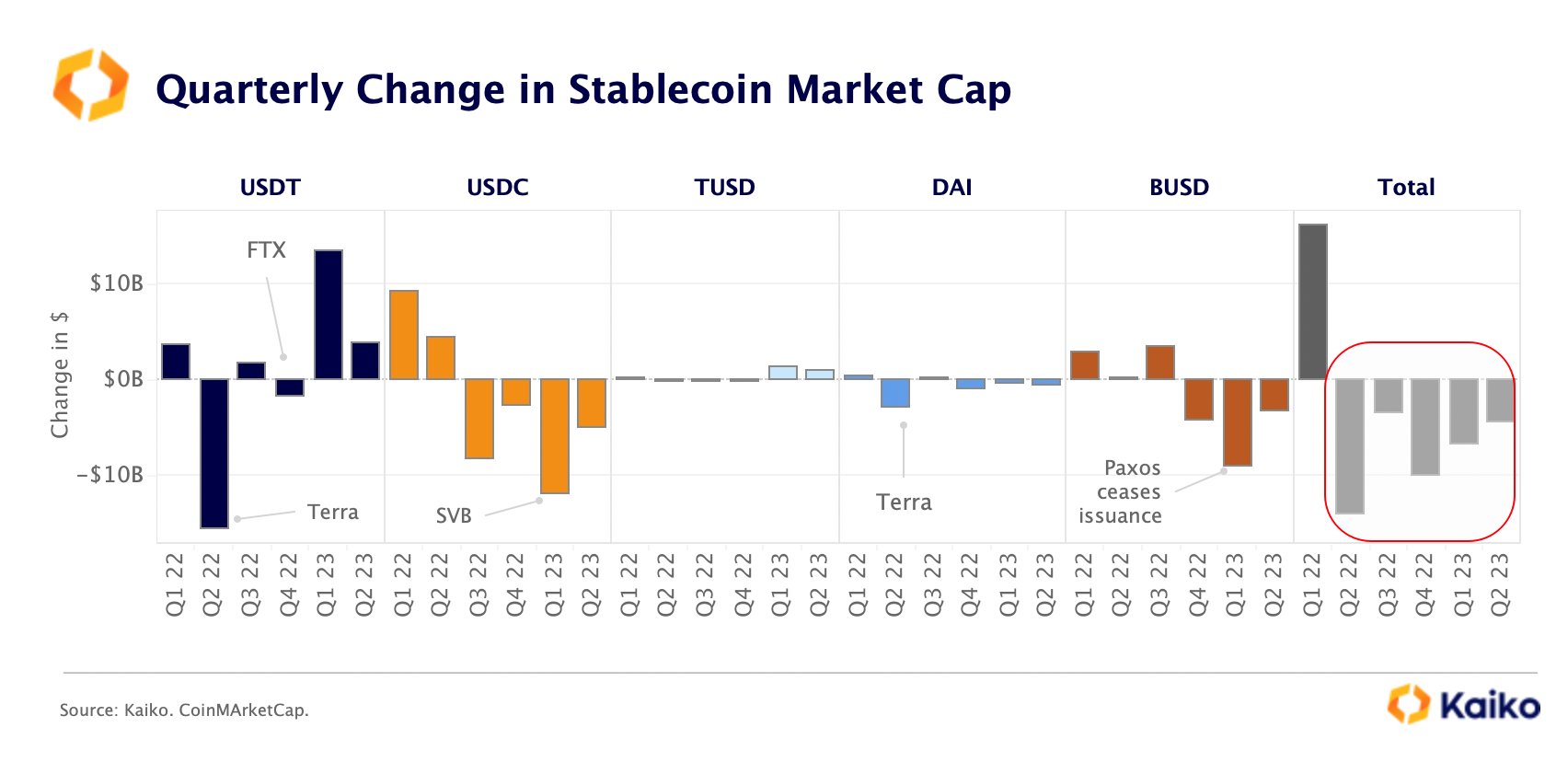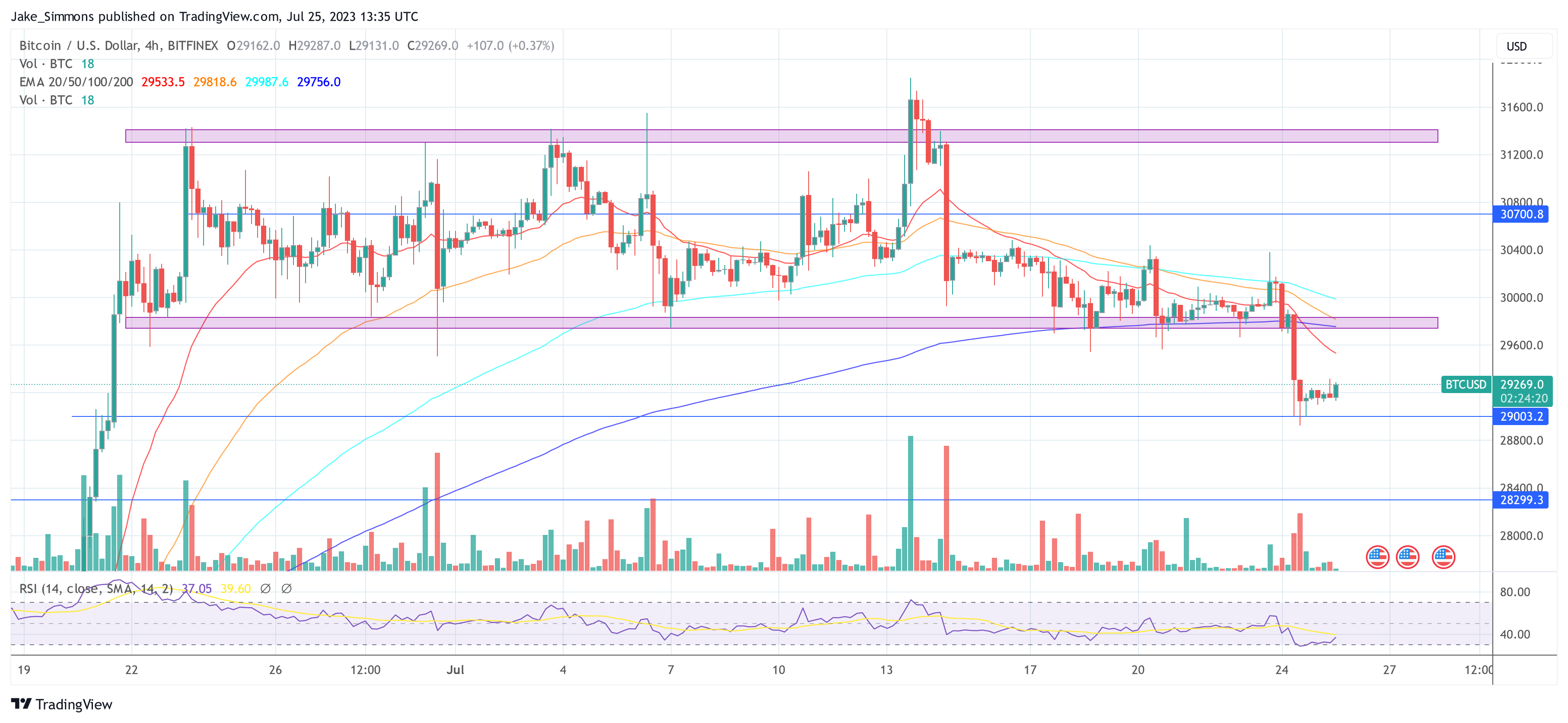In the Bitcoin and crypto market, stablecoins have emerged as a crucial element for liquidity, often dubbed as the “dry powder”. Stablecoins like Tether (USDT), USD Coin (USDC) and TrueUSD (TUSD) provide a safe haven for investors, allowing them to park funds on the sidelines before making strategic moves into BTC and altcoins.
However, recent observations by industry experts and data analysts suggest that the stablecoin fuel is running low, raising questions about the upside potential the market is currently providing.
The Significance Of Stablecoins
Stablecoins have gained prominence as one of the most liquid trading pairs alongside Bitcoin on most crypto exchanges. Their high liquidity and stable value make them an attractive choice for investors seeking to time their market entry effectively.
According to Ki Young Ju, Co-founder & CEO of CryptoQuant, the market cap ratio of stablecoins on exchanges has historically correlated with Bitcoin price rallies, offering insights into investors’ sentiment and readiness to deploy funds. Today, Ju shared the following chart and tweeted, “stablecoin fuel is running low.”

Ju’s shared chart highlights the intriguing relationship between Bitcoin price movements and the market cap stablecoin ratio vs. BTC and ETH. During the collapse of FTX, investors sought refuge in stablecoins due to the price crash, leading to a surge in the stablecoin ratio versus BTC and ETH.
Conversely, Bitcoin’s price rally in mid-March was preceded by a rise in the stablecoin ratio. In the run-up, the stablecoin ratio rose from below 0.2 to over 0.25. By mid-April, the BTC price reached an interim high for the year, while investors’ stablecoin reserves were depleted and the stablecoin ratio fell to 0.15.
Upside Potential Looks Limited For Bitcoin And Altcoins
The most recent example is the price rally from mid to late April. The stablecoin ratio experienced slow but steady growth, rising from 0.15 to 0.18. The accumulated dry powder was unloaded in the most recent Bitcoin price surge from $27,000 to $31,500.
With the current stablecoin ratio at 0.155, there appears to be limited room for rapid upward price jumps in Bitcoin. Fresh capital in the form of stablecoins needs to flow into the market to support any significant price movements. Ju states, “market boring until more stablecoins injected for buy-side liquidity.”
Digital assets data provider Kaiko also pointed out a concerning trend regarding stablecoin market cap today. The total market capitalization for the top five stablecoins has reportedly declined for five consecutive quarters.

However, it’s worth noting that Tether (USDT) and TrueUSD (TUSD) have managed to buck this downward trend.
Moreover, the overall market depth in USD terms has seen only a slight spike since the Ripple ruling. Market depth, which measures the sum of bids and asks within 1% of the mid-price for all order books, provides crucial insights into the supply and demand dynamics of cryptocurrencies.
At press time, the BTC price stood at $29,269.









